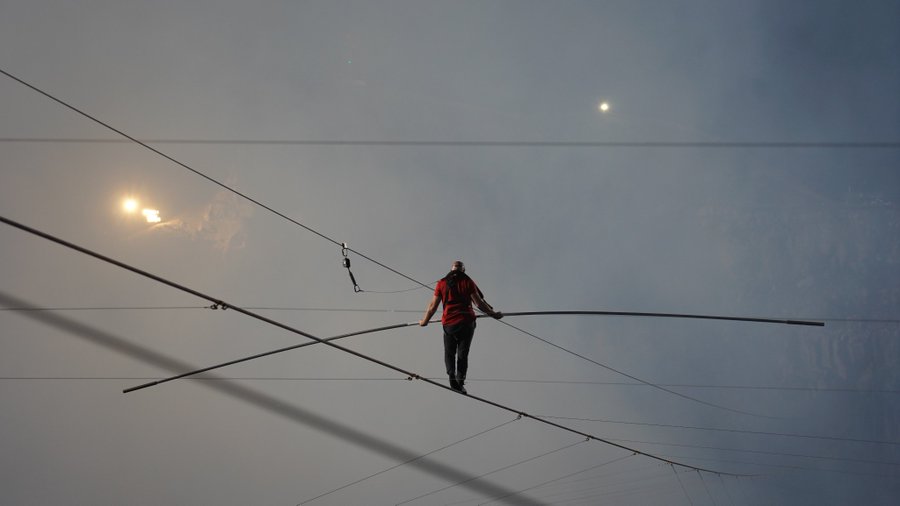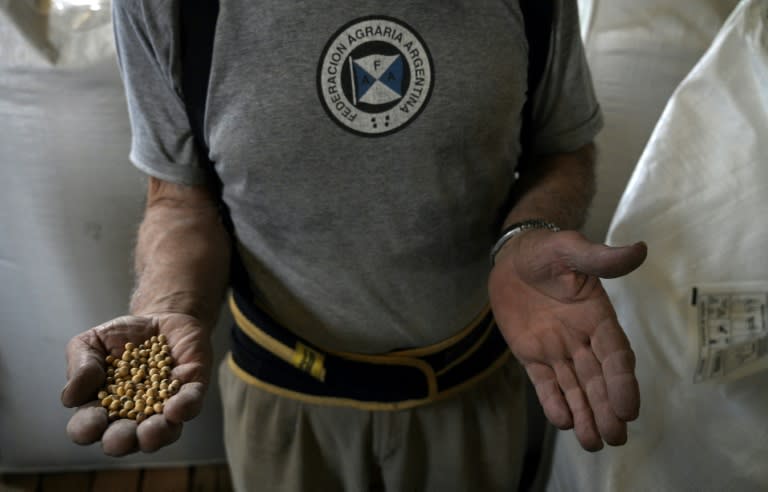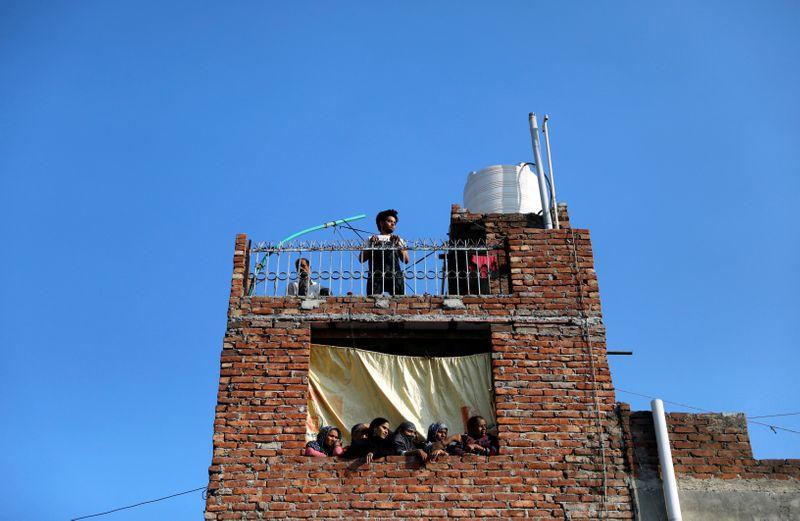High-wire artist Nik Wallenda crossed Nicauragua's active Masaya Volcano during the ABC special Volcano Live! Wednesday night. And he had to worry about a lot more than just keeping his balance.
This volcano is one of only eight volcanoes in the world to have a lava lake, filled with 2,000-degree molten rock. The volcano also emits a toxic fog that is made up of hydrogen fluoride, hydrogen sulfide, hydrochloric acid, sulfur dioxide, and carbon dioxide gasses, which required that the high-wire cable be coated in special material to keep from corroding.
Wallenda wore a gas mask and sealed goggles to keep the toxic fumes from burning and incapacitating him. Despite the safety precautions, he said that the gasses managed to burn his eyes.
At a height of 1,800 feet, this was Wallenda's highest walk. He later admitted it was also his windiest. There was one point during the walk in which viewers could really see Wallenda battling the wind.
Despite the toxic gasses, 2,000-degree lava, gusting winds, and the fact that this was his longest and highest crossing of his career, many viewers complained on Twitter about Nik wearing a safety harness, causing quite a feud to emerge between haters and fans.
It should be pointed out that Wallenda normally uses a safety harness, including his walks across Niagara Falls and Times Square. In fact, the only major walk he has done in the last eight years without a safety harness was the Grand Canyon in 2013.
The entire crossing took Wallenda a little over 31 minutes. He spent much of that time praying, as well as pitching his new book Facing Fear. When he did finally finish the walk, he was greeted by hugs, cheers, and place in the history books.
The entire crossing took Wallenda a little over 31 minutes. He spent much of that time praying, as well as pitching his new book Facing Fear. When he did finally finish the walk, he was greeted by hugs, cheers, and place in the history books.
NIk Wallenda becomes the first person to walk over an active volcano

Overcoming fear. #VolcanoLivewithNikWallenda pic.twitter.com/vfj2AeQwai— Nik Wallenda (@NikWallenda) March 5, 2020
March 4 (UPI) -- Nik Wallenda became the first person to walk a high wire directly over an active volcano on Wednesday night.
The 41-year-old known as the "King of the Wire" successfully completed the 1,800-foot-long walk over the Masaya Volcano in Nicaragua in a two-hour ABC special titled "Volcano Live! with Nik Wallenda."
"It was amazing," said Wallenda. "The first half of the walk, just being able to see that volcanic lava down there ... absolutely mesmerizing."
What would you be thinking if you were in Nik's shoes right now?
VIDEO ON TWITTER
#VolcanoLivewithNikWallenda pic.twitter.com/uXFQH2ujWD— Nik Wallenda (@NikWallenda) March 5, 2020
Wallenda added that the wind conditions were unpredictable and the gasses from the volcano burned his eyes, which were protected by a gas mask.
"I just put myself in my back yard training," he said. "I just put myself back there and just mentally went 'OK, you're fine, you've walked in stronger winds than this.'"
Wallenda previously broke a Guinness World Record over the summer when he walked 1,808 feet across a tightrope in a Canadian city 30 feet over the ground in about 30 minutes.
He has also walked 25 stories above Time Square, faced what he described as the "intimidating roar of falls" and "blinding mist" as he made a 1,800-foot-long trek 170 feet above Niagara Falls, and walked a wire 1,500 feet above an Arizona gorge near the Grand Canyon without a harness.
---30---











